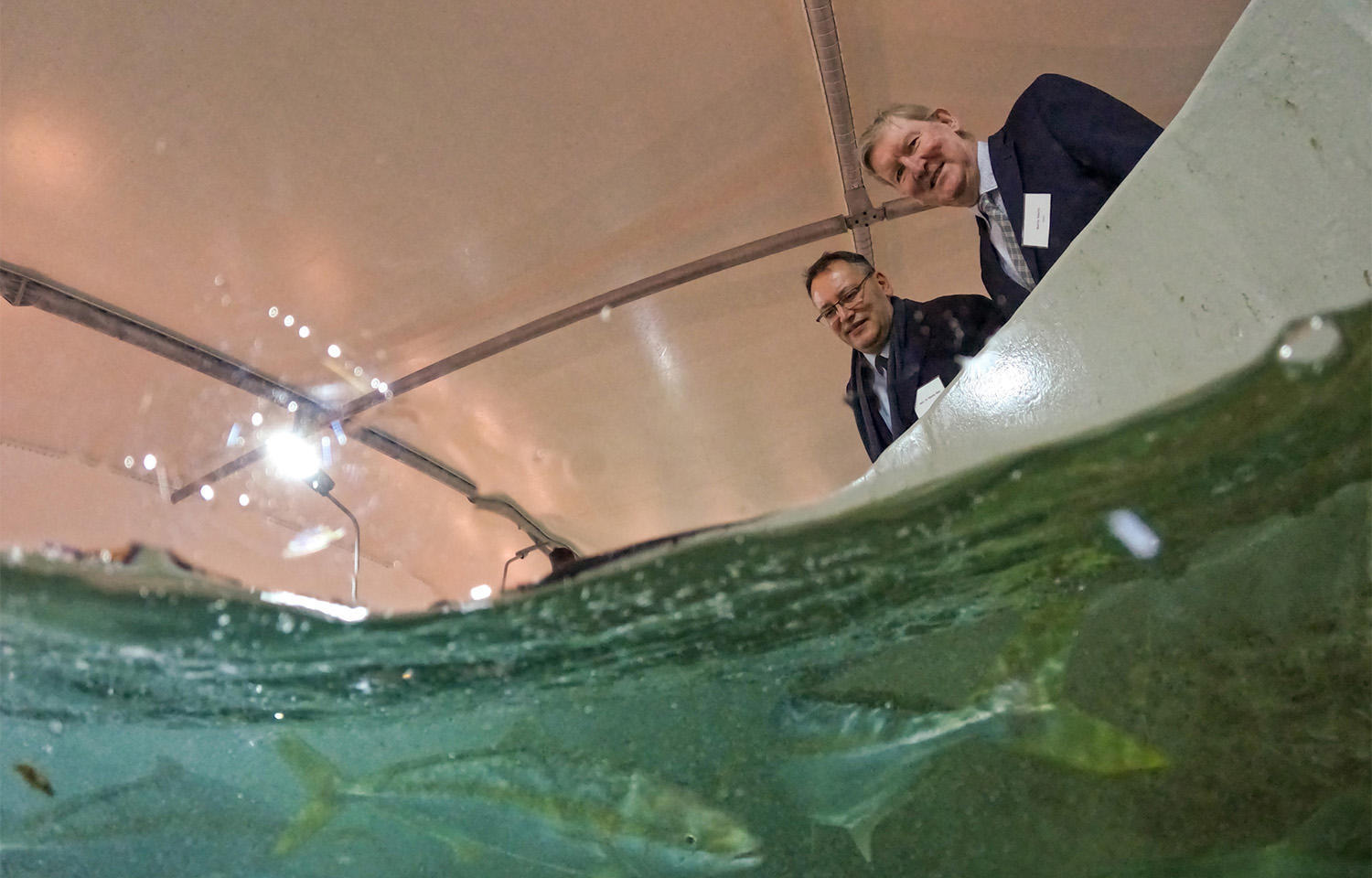New Zealand’s National Institute of Water and Atmospheric Research (NIWA) has opened a land-based kingfish farm, calling it the first of its kind in the country.
The new kingfish farm is located in Ruakaka Northland and can produce up to 600 metric tons (MT) of kingfish each year, according to NIWA. The farm uses a land-based recirculating aquaculture system (RAS) to produce the fish and is the product of a joint venture between NIWA and the Northland Regional Council.
NIWA is a Crown Research Institute established in 1992, which, like other Crown Research Institutes, operates as a Crown-owned company that can operate independently to do scientific research on topics relevant to New Zealand. Ownership in the company is held between two ministers appointed by the New Zealand government, and management of the company is undertaken by a Crown-appointed board of directors.
NIWA Chief Executive John Morgan said the new farm was designed with introducing kingfish into the New Zealand market in mind.
“We saw a clear gap in the market for an on-land farm that produces commercial quantities of high-quality fish,” Morgan said in a release. “This new facility uses a recirculating aquaculture system, which offers superior environmental and economic performance, and full control over all aspects of production.”
Morgan said NIWA chose kingfish for its growth characteristics and its status as a premium species.
“Kingfish are known for their rapid growth and efficient conversion of feed to flesh. Our fish grow from a 1mm egg to a 3-kilogram, market-sized fish in less than 12 months,” Morgan said. “Our extensive research and experimentation has identified the conditions that maximize the health and welfare of the fish.”
The new farm will also help the ...








